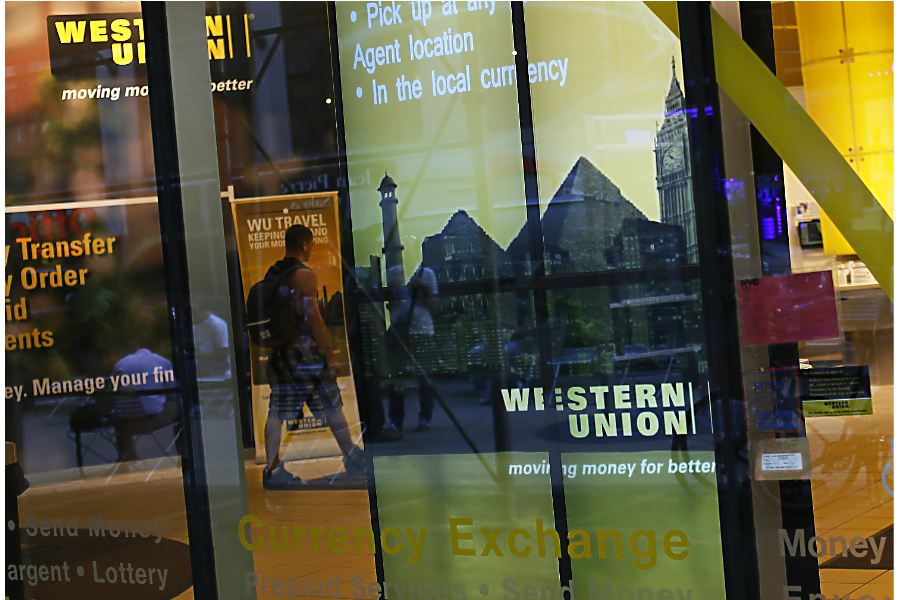How blockchain can be a force for good in the developing world
Loading...
Anita is an in-home care nurse in the United States. Each month she sends a portion of her earnings to relatives back in the Philippines. These monthly gifts ensure that Anita’s two nieces can afford new clothes and school supplies, that her father can pay for quality healthcare, and that her brothers won’t have to worry about covering the costs of the family farm after an unusually harsh season.
Meanwhile, Anita’s monthly support means serious dollar signs for money transfer companies like Western Union. In 2015 alone, migrant workers sent an estimated $582 billion to relatives back in their home countries. With average fees of around 8 percent for international money transfers, the global remittance market has become a reliable cash-cow for traditional financial institutions.
While a $10 transfer fee might not sound like much, it represents nearly three times the daily cost of food for an entire low-income Filipino household. Thinking of all the uses her family might have for an extra $10 each month, Anita recently decided to switch to Abra, an online money transfer service that uses cutting-edge technology to perform secure transactions without any of the typical fees imposed by financial intermediaries.
Abra – like Hong Kong-based OKLink or BitPesa out of Nairobi – is just one of a growing number of international money transfer companies that stand poised to upend the global remittance market by using blockchain, a digital architecture most commonly known as the technology behind the virtual currency, Bitcoin.
But what is blockchain?
In broad strokes, blockchain is a way to securely record transactions in a distributed digital ledger. This distributed ledger shifts the responsibility of verifying transactions from a single trusted authority, like a bank for example, to a shared effort involving every participant in a network.
By allowing users to conduct secure transactions with one another directly, blockchain eliminates the need for regulatory middlemen. This allows companies like Abra to save time and money by avoiding the lengthy processing periods and fees imposed by traditional money transfer services.
Even more exciting is that companies like Abra are using blockchain to promote financial inclusion. By allowing unbanked individuals and communities to send and receive cash directly, blockchain-backed transfer services reduce the barriers that keep many of the world’s poor from gaining liquidity.
Unsurprisingly, blockchain is rapidly proving to be a powerful force for good in the developing world, and disrupting the remittance market is just the tip of the iceberg.
The distributed ledger at the core of blockchain has a dizzying number of applications outside of finance. While national governments have begun experimenting with blockchain-backed land registries, fresh players in the development world have started to explore alternative uses for immutable records and self-enforcing contracts.
Many of blockchain’s potential applications in the development world deal with streamlining internal operations. For example, an Italian startup called Helperbit is using blockchain to rein in the lack of transparency that often hampers disaster relief efforts. By using a distributed ledger to allow donors to monitor the allocation of their funds, Helperbit stands to promote accountability in the nonprofit sector while encouraging would-be donors to get involved.
Meanwhile, a host of companies are putting blockchain to work in the field. Provenance, headquartered in London, is using blockchain to shed light on global supply chains and promote socially responsible and sustainably sourced products. A recent pilot study tracked Indonesian yellowfin and skipjack tuna from “catch to consumer” to demonstrate how blockchain can be used to verify sustainability claims and combat rights abuses in the international fishing industry.
Operating in a similar vein, the Brazilian lumber exchange company BVRio recently adopted blockchain backed timber registries to discourage illegal logging operations. The new blockchain registry provides an accessible toolkit for due diligence, encouraging sustainable sourcing in an industry long fraught with violations of environmental law.
Like most disruptive new technologies, blockchain has its fair share of critics. Observers in the development sector are right to point out that blockchain’s uses might be seriously hindered by poor energy infrastructure and unreliable internet connections, conditions that frequently affect communities in the developing world.
Still, many of these claims may be overblown. As the market warms and the technology gains traction, blockchain-based services are becoming increasingly accessible to individuals in remote and technologically strained environments. Consider that multiple blockchain-backed currency exchanges can already be operated by SMS alone. With a little instruction, someone in sub-Saharan Africa equipped with nothing more than a pre-paid Nokia cellphone can benefit from blockchain.
While the jury is still out on whether or not blockchain will prove to be a game-changing technology for the development sector, there are still plenty of reasons to be excited. From revolutionizing remittance payments to preserving protected forests, blockchain’s diverse applications make it one technological innovation worth keeping an eye on.
• This article originally appeared at Global Envision, a blog published by Mercy Corps.







